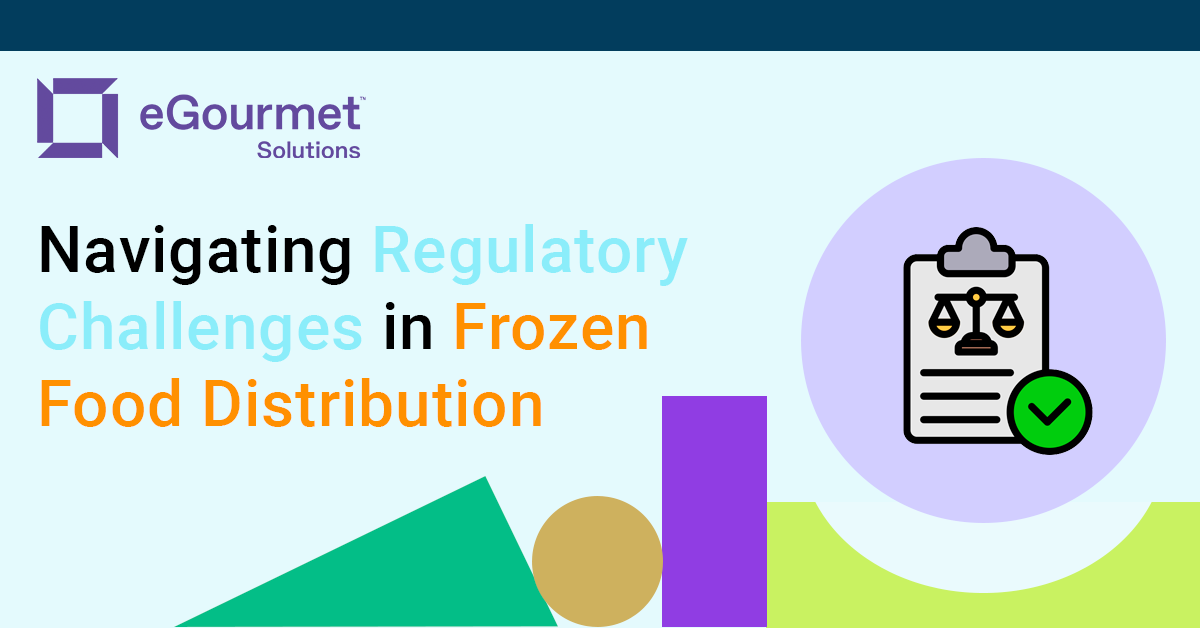
Frozen food is important in our busy lives, providing convenience without sacrificing the nutrition of fresh food. However, half of consumers worry about the safety of fresh, perishable and frozen foods (NFRA). Learning how to be compliant in frozen food can be a complex endeavor, with regulations varying across different countries. In this blog, we will explore the regulatory and compliance challenges faced by the frozen food industry.
Understanding the Regulatory Landscape:
Food Safety Regulations:
At the heart of frozen food distribution regulations lies the imperative to ensure food safety. Governments make rules to keep frozen food safe and maintain its quality by handling, processing, and storing it properly. Compliance with these regulations, like the FDA regulations, is critical to public health and the frozen food industry.
Labeling Requirements:
Accurate and comprehensive labeling is essential for frozen food products. National regulations frequently require labels to include specific information, such as ingredient lists, nutritional facts, allergen information, and storage instructions. Adhering to these requirements not only ensures consumer safety but also helps in building trust and transparency.
Cold Chain Management:
The frozen food distribution chain relies heavily on maintaining a consistent and controlled temperature, known as the cold chain. Governments set strict guidelines to ensure that frozen products are transported and stored within specified temperature ranges. Compliance with cold chain regulations is crucial for preventing spoilage, maintaining product quality, and extending shelf life.
Import and Export Regulations:
For companies involved in international trade, understanding and complying with import and export regulations is paramount. Every country has its own rules for importing frozen food, including inspection, paperwork, and quarantine requirements. Following these rules needs careful planning and coordination from industry members. Usually, the governing body will have basic regulations on their websites!
Guidance on Compliance:
Stay Informed:
To stay updated on changes to food safety rules, labeling needs, and import/export laws, create a strong system to stay informed. This system will help you stay informed about any potential impacts on your business.
Invest in Quality Assurance:
Implement rigorous quality assurance measures throughout the entire cold supply chain. This includes regular inspections, testing, and documentation to ensure that products meet or exceed regulatory standards. Being proactive in quality assurance boosts compliance and safeguards your brand’s reputation.
Collaborate with Regulatory Bodies:
Regulatory bodies want to maintain a good relationship with the frozen food industry. Foster open communication and collaboration with regulatory agencies. Establishing a positive relationship with these entities can facilitate compliance and provide valuable insights into upcoming changes or expectations within the industry.
Employee Training and Awareness:
Equip your workforce with the knowledge and skills needed to uphold regulatory compliance. Regular training on food safety, labeling, and cold chain management helps create a culture of compliance in your organization.
As the industry continues to grow, so does the importance of navigating regulatory challenges. By following food safety regulations, businesses can comply and help the frozen food distribution sector succeed and last. To navigate frozen food regulations, stay informed, invest in quality assurance, collaborate with regulators, and prioritize employee training. eGourmet Solutions is always up to date on the latest regulations. Partner with us today.